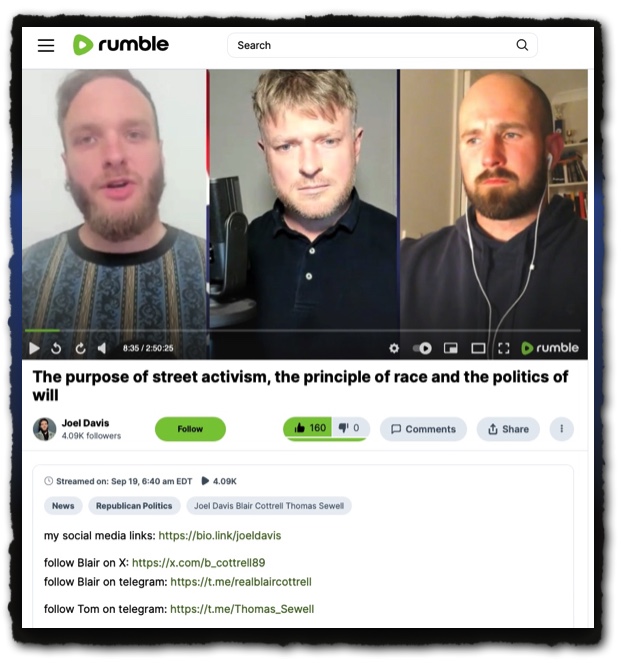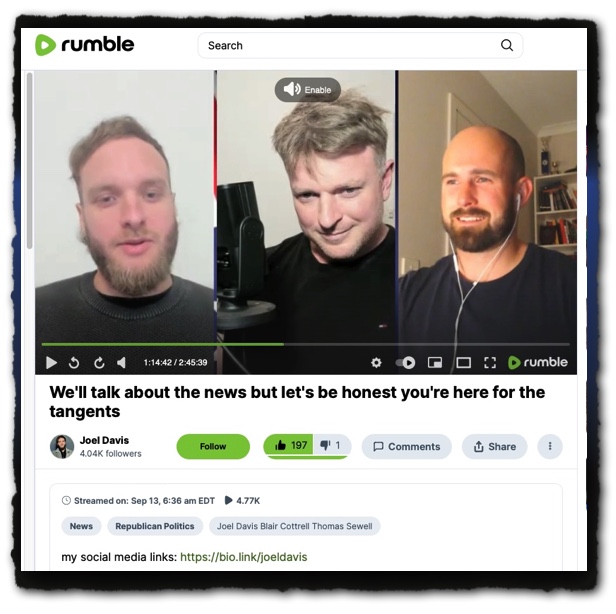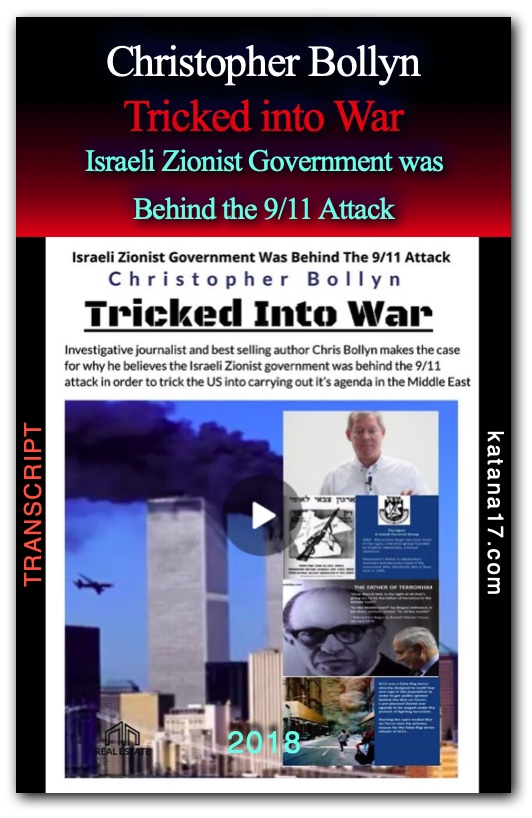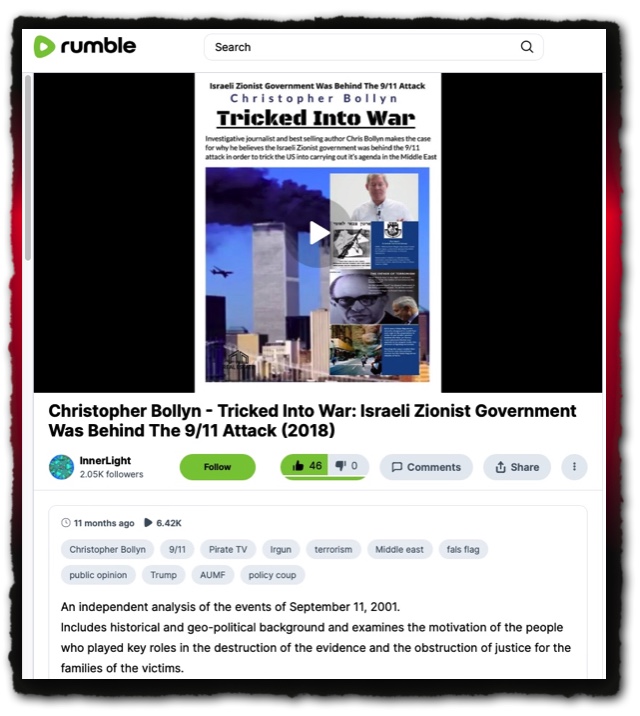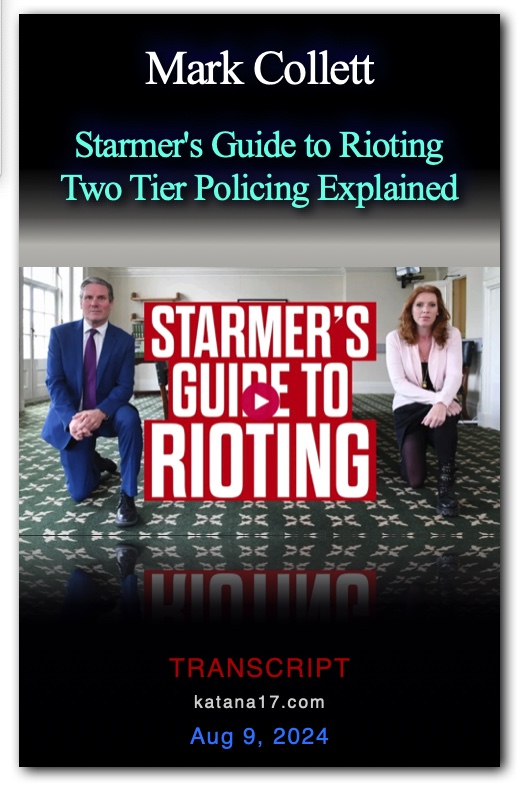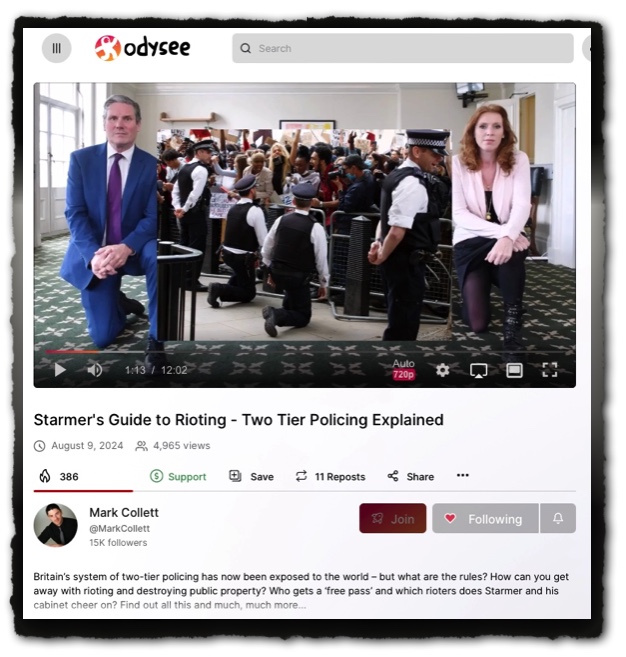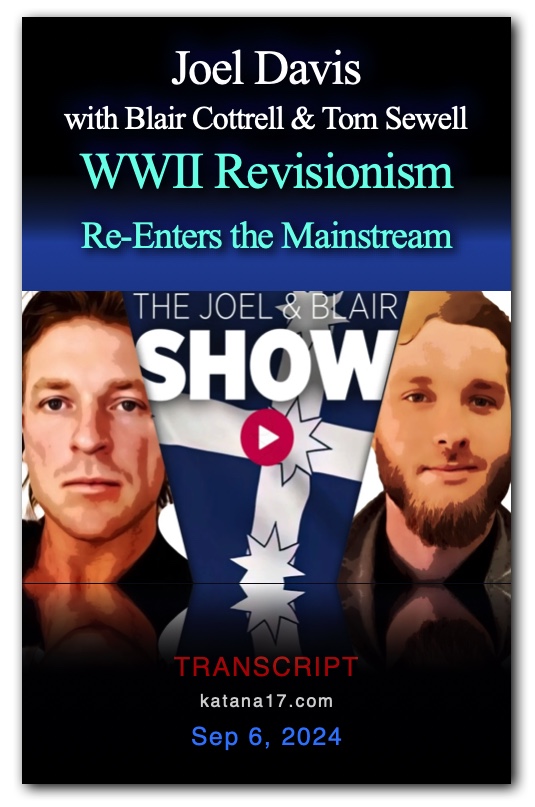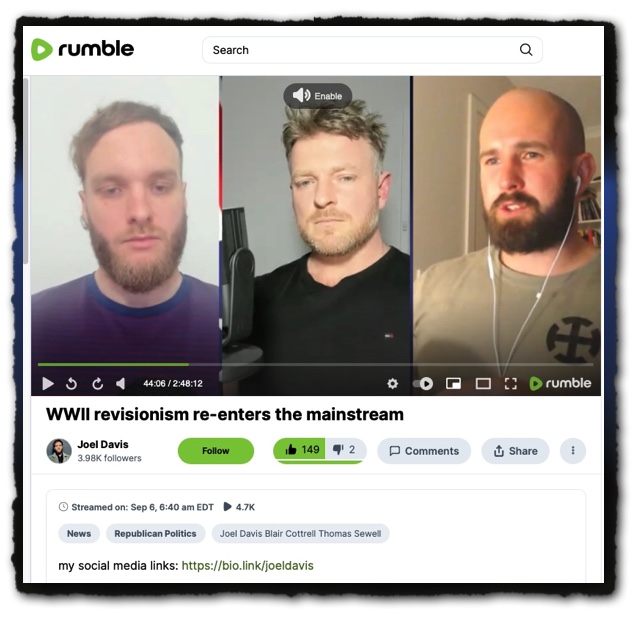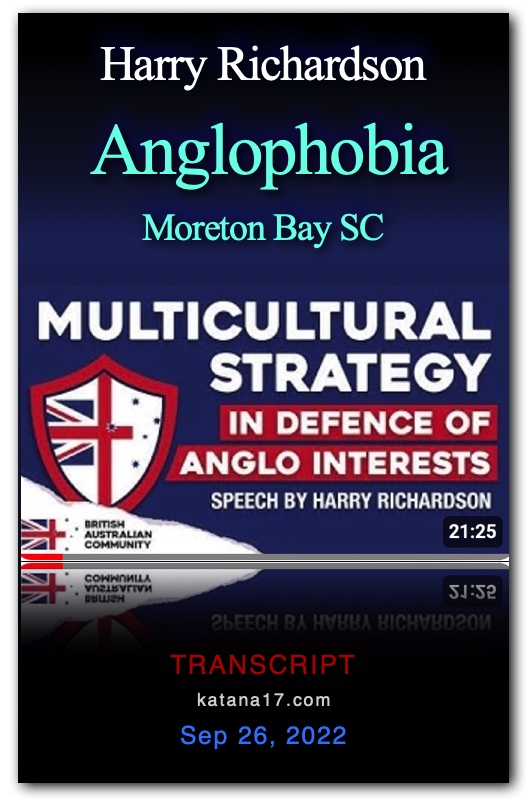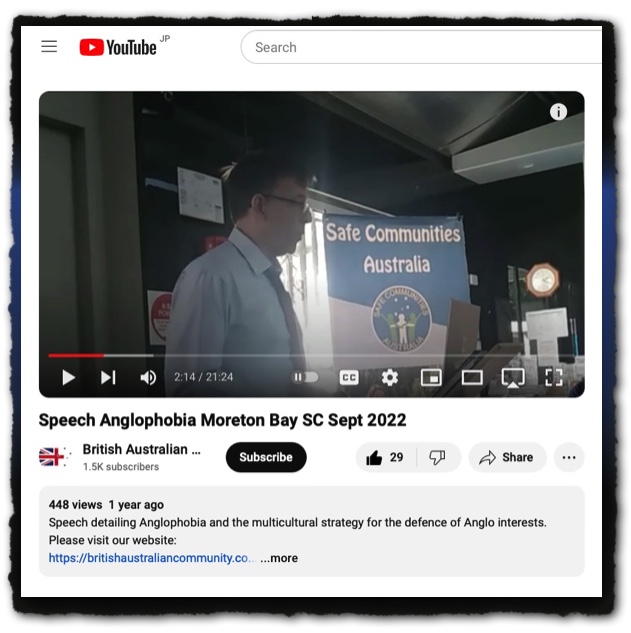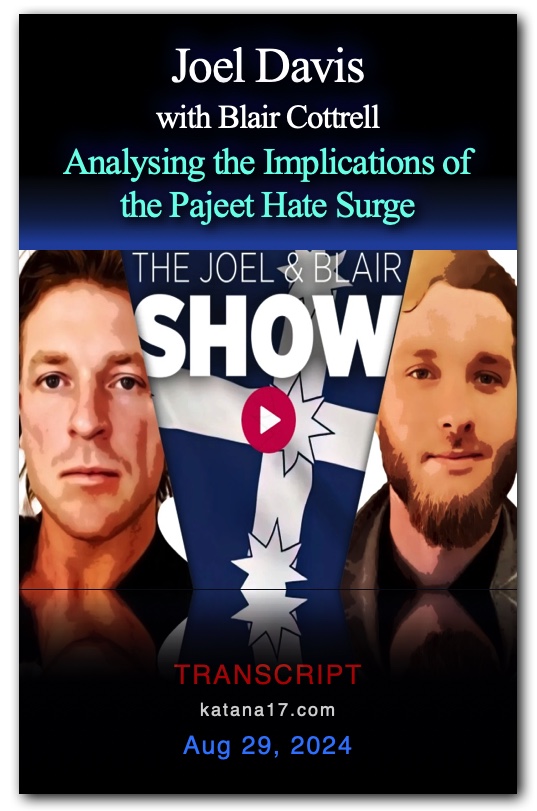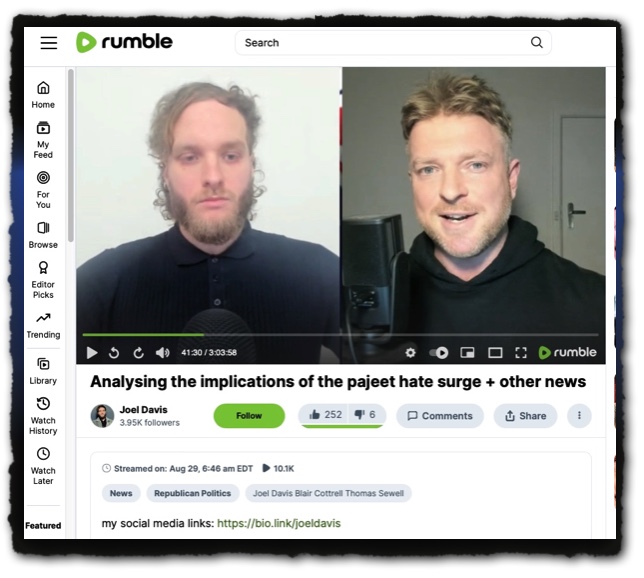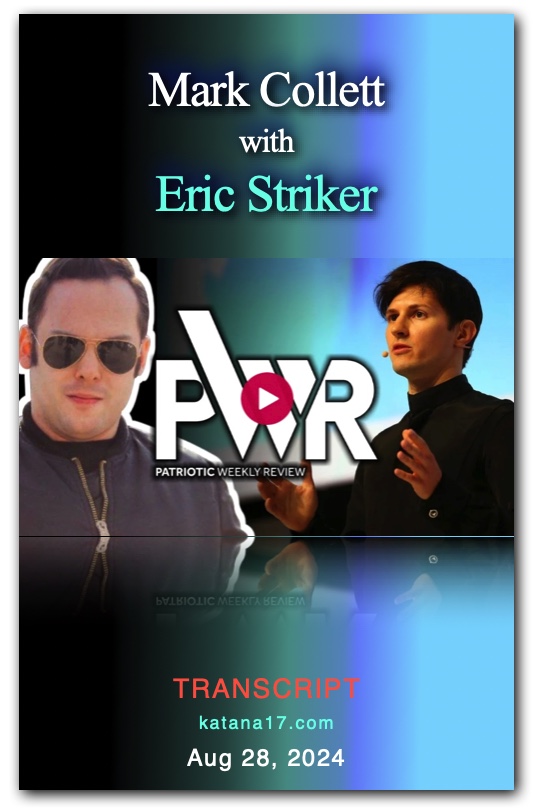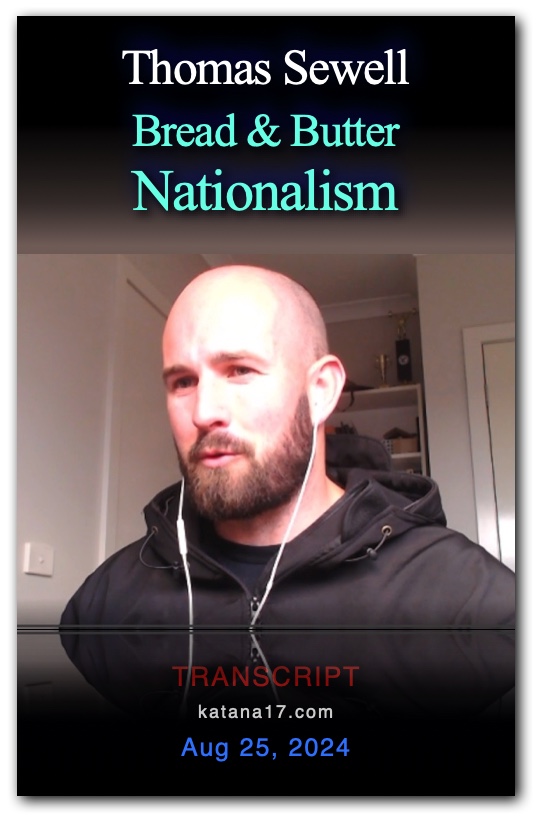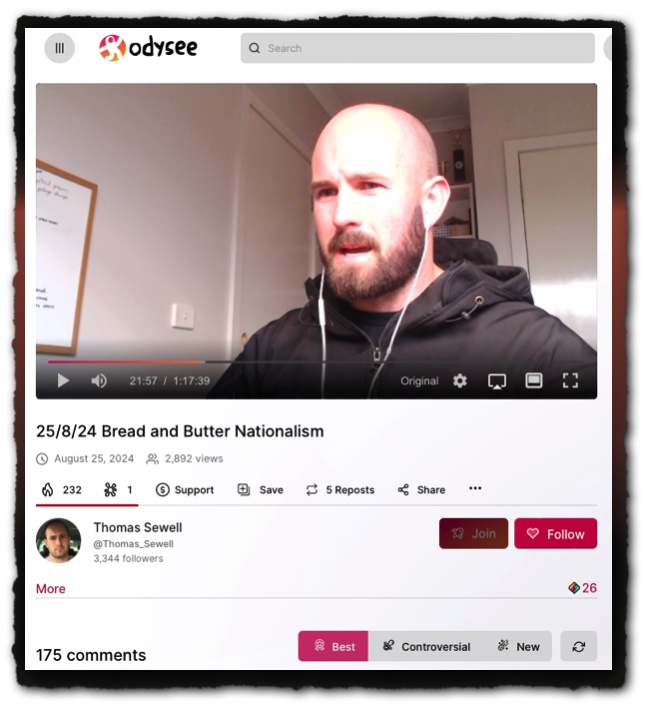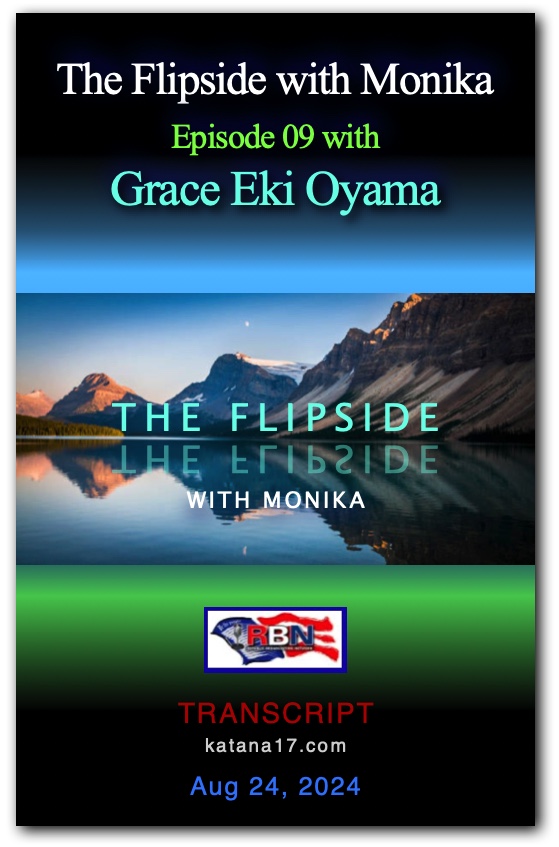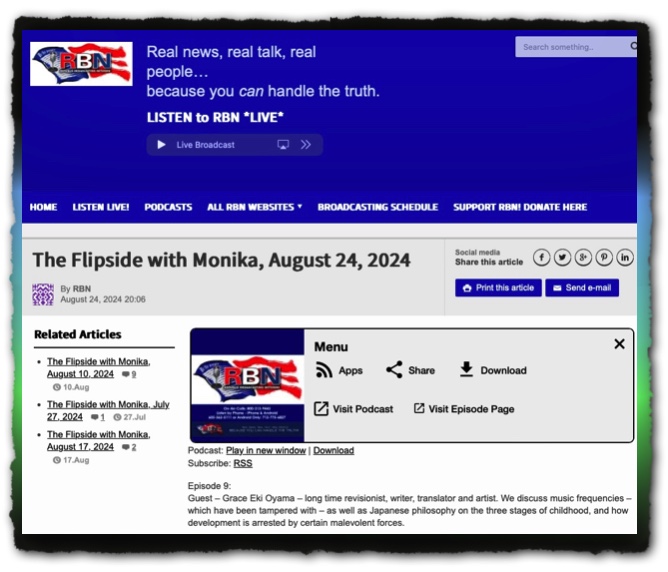Joel Davis
The Purpose of Street Activism, the Principle
of Race and the Politics of Will
Thu, Sep 19, 2024
[In this livestream episode Aussie nationalist activists Joel Davis, Blair Cottrell and Tom Sewell discuss the following:
• Now hosting a live stream on Twitter/X for the first time.
• Recent activism and interviews, including one with a young Australian influencer/YouTuber, Max Caruso.
• They criticize Nick Fuentes’ views on their street activism tactics.
• Argue for the importance of militant street activism to recruit and inspire supporters.
• The need for white nationalism and racial loyalty: “We are one racial family with one shared destiny and the survival of our race.”
• Criticize attempts at political alliances with non-white groups.
• Discuss recent Australian political events, including a politician’s comments on Abo “Welcome” ceremonies.
• Argue that White people need to “stop White flighting and start fighting back” against immigration.
• Criticize conservative politics and argue for more radical action.
• The differences between American and Australian politics and nationalism, “White nationalism was the product of struggle in Australia.”
• Criticize Muslim immigration and Islamic views.
• Importance of aesthetics and looking “cool” in political activism. “Looking cool is actually really more important than almost anything else that you do in politics.”
• The need to appeal to women supporters.
• Discuss historical figures like Hitler and philosophical concepts related to their ideology.
• Criticize “multiracial alliance retards” and argue for racial separatism.
• Discuss the concept of freedom and its relation to racial identity. “Freedom wasn’t this abstract concept, therefore, of you’re free because people leave you alone. No, you’re free because you are loved by your people and because your people make you free.”
• The importance of loyalty to one’s race and family.
• Meta-ethical positions and their relation to white nationalism.
• Criticize universalist ethical systems and argue for particularism.
• Express support for white nationalists in other countries, particularly America and Europe.
• Discuss gun rights and criticize Americans who focus on guns while “everything slips through your fingers.”
• Argue for the need for a political movement to represent White Americans.
• Discuss historical events like the American Revolution and Australian Federation.
• Criticize the influence of jews in politics and media.
• Discuss the concept of “cucking” and argue against compromising their beliefs.
• Express admiration for militant Christian groups and discuss potential alliances.
• Argue for the deportation of non-White people from Australia.
• Discuss the concept of “White flight” and argue against it.
• Criticize mainstream politicians and media figures.
• Importance of recruiting young men to their cause.
• Argue for the need to “shock people with the irrational” to gain support.
• Discuss the concept of social cohesion and argue that it requires racial homogeneity.
• Criticize multiculturalism and argue for white-only societies.
• Discuss the concept of “larping” in politics and argue for genuine action.
• Express support for historical fascist and NS figures.
• Importance of building a movement that can challenge the current political system.
• The need to adapt to current political pressures: “We have just enough pressure in order to effectively adapt to and overcome our adversaries at this point.”
• The concept of existential struggle and its relation to their ideology.
• End by expressing support for white nationalists globally and encouraging further action.
– KATANA]
https://rumble.com/v5fiq65-the-purpose-of-street-activism-the-principle-of-race-and-the-politics-of-wi.html?e9s=src_v1_ucp
https://odysee.com/@joeldavis:0/purpose-of-street-activism:2
my social media links: https://bio.link/joeldavis
https://x.com/joeldavisx
follow Blair on telegram: https://t.me/realblaircottrell
Published on Thu, Sep 19, 2024
Description
2:50:25
Enable
The purpose of street activism, the principle of race and the politics of will
Joel Davis
4.09K followers
160 Likes
0
Comments
Share
Save
Embed
Streamed on:
Sep 19, 6:40 am EDT
4.09K
News
Republican Politics
Joel Davis Blair Cottrell Thomas Sewell
my social media links: https://bio.link/joeldavis
follow Blair on X: https://x.com/b_cottrell89
follow Blair on telegram: https://t.me/realblaircottrell
follow Tom on telegram: https://t.me/Thomas_Sewell
Show less
18 Comments
_____________
Following Transcript Quality = 5 Stars
1 Star — Poor quality with many errors, contains nonsense text 2 Stars — Low quality with many errors, some nonsense text. 3 Stars — Medium quality with some errors. 4 Stars — Good quality with only a few errors. 5 Stars — High quality with few to no errors.
NOTE: Readers can help improve the quality of this transcript by putting corrections in the Comment/Leave a Reply section. Don’t be just a consumer, contribute to the cause, however small. Thanks.
TRANSCRIPT
(Words: 30,174 – Duration: 170 mins)


